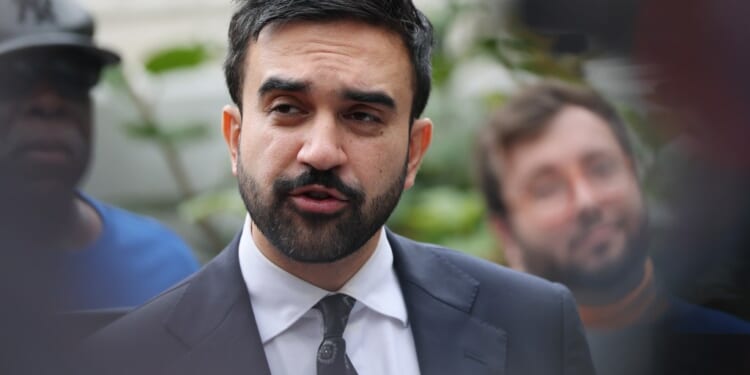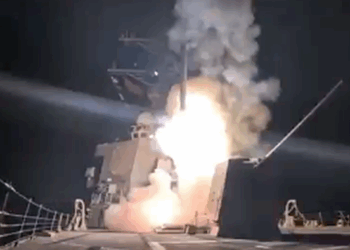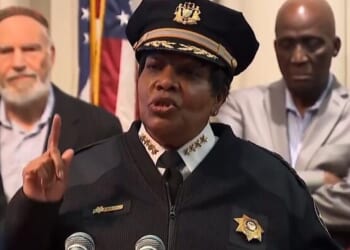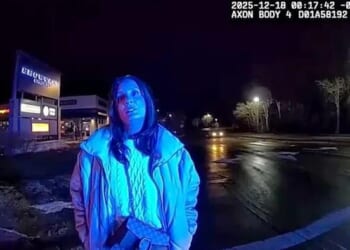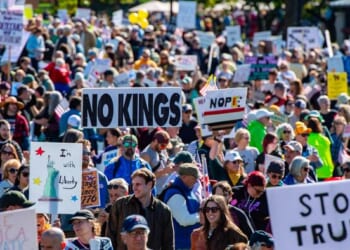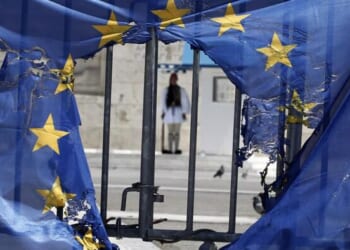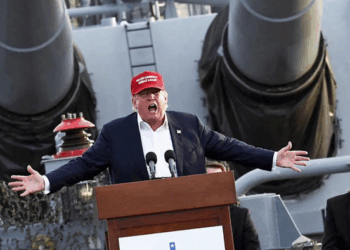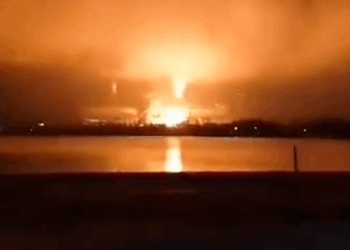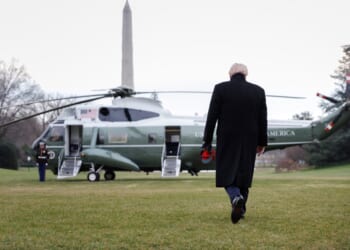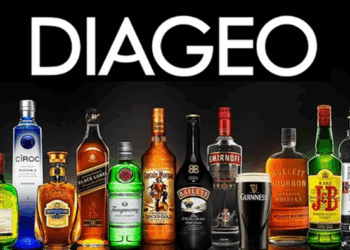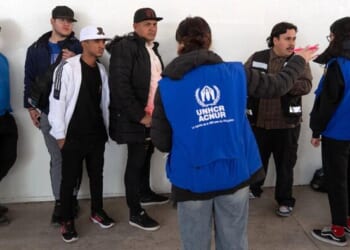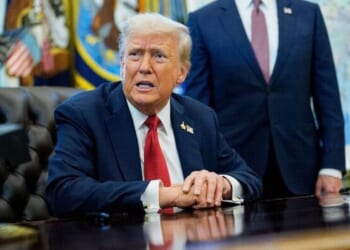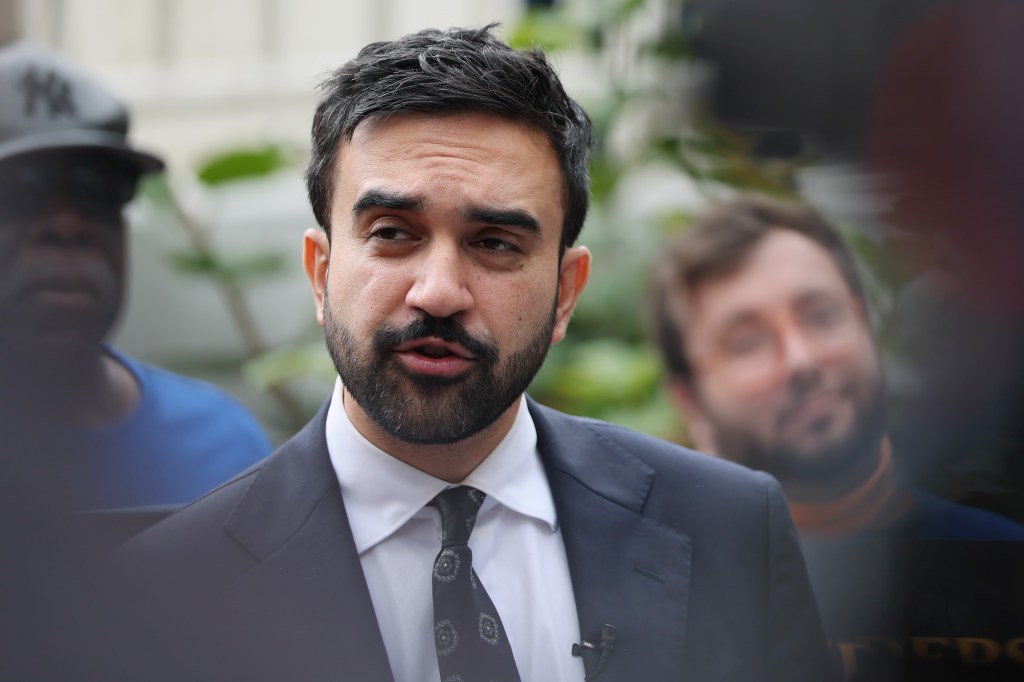
NEW YORK—It wasn’t easy finding Zohran Mamdani on October 7.
Mamdani is the 33-year-old Democratic nominee and leading candidate in next month’s mayoral election. Unlike his top rival, former Gov. Andrew Cuomo, Mamdani is an energetic campaigner, appearing daily across the city to pitch his progressive agenda as Election Day approaches. On Monday, October 6, Mamdani was in Queens to tout a new “savings” calculator on his campaign website to show how his proposals for a rent freeze and free childcare would help New York citizens. And on Wednesday, October 8, he appeared at a forum in Manhattan with other mayoral candidates before riding the “slowest bus in New York” across Midtown and holding an event to herald his plan to offer “fast and free” bus service.
But on the eve of the two-year anniversary of the Hamas-led terrorist attacks in Southern Israel that killed more than 1,000 Israelis and saw the capture of hundreds of hostages, Mamdani’s schedule for the following day was, unusually, not emailed to the press.
The next morning, Tuesday, October 7, reporters received a statement from Mamdani marking the anniversary. The progressive state assemblyman described the attacks as a “horrific war crime,” said he mourned the lives lost, and prayed for the return of the remaining Israeli hostages. The statement went on to criticize the response of the Israeli government, calling it a “genocidal war” in which the American government is “complicit.” The statement also called for an end to what Mamdani called the “occupation and apartheid” by the Israelis against the Palestinian people.
The statement, featuring twice as many words criticizing Israel as on the attacks themselves, drew a sharp rebuke from the Israeli government, which called the words “shameful” and accused Mamdani of being a “mouthpiece for Hamas propaganda.”
It also illustrates why Mamdani appeared to be lying low on this particular day. Mamdani is not merely a critic of the Israeli government’s war in Gaza or its policies toward the Palestinians. He has espoused anti-Israel views and refused to condemn antisemitic rhetoric that some of his political allies in the far-left movement have employed.
The issue of Israel was not enough to derail him in June’s Democratic party primary, during which his campaign focused more on the high cost of living and other pocketbook issues. But the issue remains politically sensitive even as Mamdani looks well-placed to win on November 4.
The glaringly obvious reason is that Jews remain an important and sizable constituency in this diverse city, making up more than 11 percent of the population. The New York metropolitan area is home to roughly a quarter of the more than 7 million American Jews, and it is the largest Jewish community outside of Israel. The Jewish influence on the culture of New York—from arts and literature to food to academia to entertainment—is undeniable.
The city’s Jewishness was on display on Tuesday afternoon in Central Park, where hundreds of people gathered on the first full day of the Sukkot holiday to join in a “celebration of life” in memory of those killed or taken hostage in Israel two years earlier. The attendees joined to read psalms, sing songs, and walk together in the circle around the park’s Great Lawn. Multiple people walked while holding the lulav and the etrog, the bound branches and citrus fruit associated with Sukkot. The procession ended with the singing of Hatikvah, the Israeli national anthem.
“I want to thank everybody for standing up for the Jews,” Yair Klyman, one of the organizers, said through a small bullhorn. “I want to say thank you for everybody showing your Jewish pride today.”
The event was a reflection of the diversity of New York’s Jewish community, from religious Hasidim to secular Jews, from members of the Socialist Workers Party to supporters of Donald Trump. There were plenty of men wearing kippahs, others wearing T-shirts commemorating the Nova music festival where Hamas had attacked and killed young Israelis. One woman at the event, wearing a T-shirt that read “Am Yisrael Chai” (“The people of Israel live” in Hebrew), also sported a button that read “F— Zohran Mamdani.”
That appears to reflect how the vast majority of New York’s Jews feel about voting for Mamdani. A recent poll from Quinnipiac found that while Mamdani received 45 percent and led a four-way race among Cuomo, Republican nominee Curtis Sliwa, and incumbent mayor Eric Adams (who has dropped out of the race but remains on the ballot), just 29 percent of Jewish voters said they were supporting him, while 60 percent say they are voting for Cuomo.
So where was Mamdani on this particular day of significance and grieving for the Jewish people? I eventually found him Tuesday evening, attending a vigil organized by Israelis for Peace in Union Square. The organizers have held a regular protest at that spot every Sunday since October 7, demanding both the return of the Israeli hostages and an end to Israel’s war in Gaza. Mamdani himself did not speak, but his close political ally, city comptroller Brad Lander, was among the vigil’s advertised speakers. The two progressive pols arrived at the vigil together, and despite the solemn occasion, Mamdani was briefly mobbed by attendees looking to greet and shake hands with him. These were his people.
Mamdani took his seat in the front row of chairs, listening intently for more than two hours as people shared personal testimonies about both the Hamas attacks and the war and conditions in Gaza. There were songs in Hebrew, interfaith prayers, and speeches from left-wing political figures and activists. Nearly every speaker referred to the Israeli military actions in Gaza as a “genocide” and denounced those actions as, as Lander put it in his address, a “desecration of Judaism.”
“We gather here every Sunday to loudly protest the unholy collaborations,” said Tamara Gayer, one of the speakers. “Israeli and American war machines rolling over the people of Gaza, Hamas and Netanyahu and his band of Messianic lunatics keeping the hostages from returning to their loved ones’ embrace and to an entire nation that’s waiting for them with bated breath.”
Strident statements like that might have been a big reason this particular event was not listed on Mamdani’s public schedule. On Thursday, Mamdani did attend some Sukkot celebrations in Brooklyn—some perfunctory attempts at outreach that were also not on his public schedule.
But what took place in Union Square Tuesday night was more revealing. The focus was not simply on remembering the lives lost on October 7 to radical antisemitic terrorists but on the supposed moral equivalence of the actions of Hamas and the response of the Israeli Defense Forces.
It was a safe space, in other words, for a candidate who has propagated anti-Israel views and is nonetheless likely the next mayor of the most identifiably and proudly Jewish city in America.

